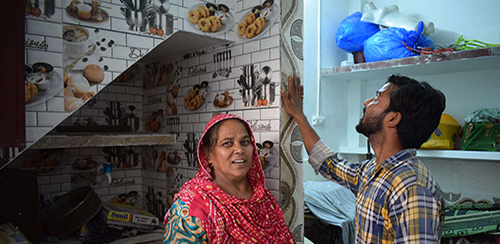It’s never an easy decision knowing when the right time is to purchase a property.
At present, there is uncertainty around property markets due to the Federal Election in July.
There are concerns about the Opposition’s housing tax policy and many who are planning their next purchase, are wary of how these new policies will affect property.
For many property investors, holding off on purchasing their new investment until after the election may be considered a wise decision, but is it necessarily a smart strategy?
Firstly, before one can make a decision, it’s best to understand what the proposed changes are and how they will affect the property market.
If Labor were to win the election, they will stop negative gearing of established investment properties bought after 1st July 2017. Capital Gains Tax will also be increased on the sale of any invest property bought after July 1st 2017 from 50% to 75% of any capital gains accrued when the property is sold.
The reason for the policy changes are to increase the housing supply to ensure housing affordability for those yet to enter the market.
Those against Labor’s policy believe the real tactic is to raise more tax revenue and save $32 billion to the budget over the next decade, with no thought to the first time investor at all.If history gives an indication of what affects affordability, its house prices and wages growth which counter affects how much the banks will lend.Unfortunately neither party in the election have suggested an improvement on wages or increase housing affordability.
If Labor wishes to make housing more affordable for the first-time buyers, it will need to reduce the value of homes to ensure the small group of first time buyers can buy a home they can afford or provide affordable properties, which are usually in outer suburbs, and away from the city where most work opportunities and services are available.
It’s a difficult situation for the first time buyer to face when wanting to get their foot into the great Australian dream of having their own home.
Labor’s intention of removing negative gearing may not be the answer. If Labor does win the election and the policies are put in place, it is forecast that there will be a miniboom in established properties as investors purchase up before July 2017 and then there will be a lull as demand for properties fall.
Similar lulls have followed after the removal of stamp duty concessions and First Home Owner grants.
We may also see an increase in property developments, which if history repeats itself, may over supply dwellings in outer suburbs or high-rise apartments that offer low capital growth and little rental interest.The knock on effect will have investors sell up, losing money by selling lived-in properties that have fallen in value as owner occupiers not investors will be interested in purchasing them.
The worst effect could be on young owner occupiers who purchased a home in the same suburb as the investor, to find the value of their home brought down as the investors sell for what they can get.
With all this potential activity, it’s not easy for the property investor to know what to do.
The best thing is to make an informed decision and not make an irrational and emotional buy due to panic. All the changes are supposed to impact property’s performance, but many well-located properties have risen in value in the past when changes have been made to the property market.
Those that are looking to make a long-term gain with their property investments, tend to be the investors that thrive.
At present, the property cycle is at a mature stretch and it’s highly probable that all capital city property markets will end up higher at the end of the year than they are currently now. This will be driven by a number of factors including steady economic growth, mild wages growth, population growth, falling interest rates and rising consumer confidence which comes after an election.
If you have the finance approved to buy your next property – whether it be a home or investment, now may be the right time to do it, rather than waiting until after the election. There will always be a risk of uncertainty, no matter who wins the election. But uncertainty can often bring unexpected opportunity.















